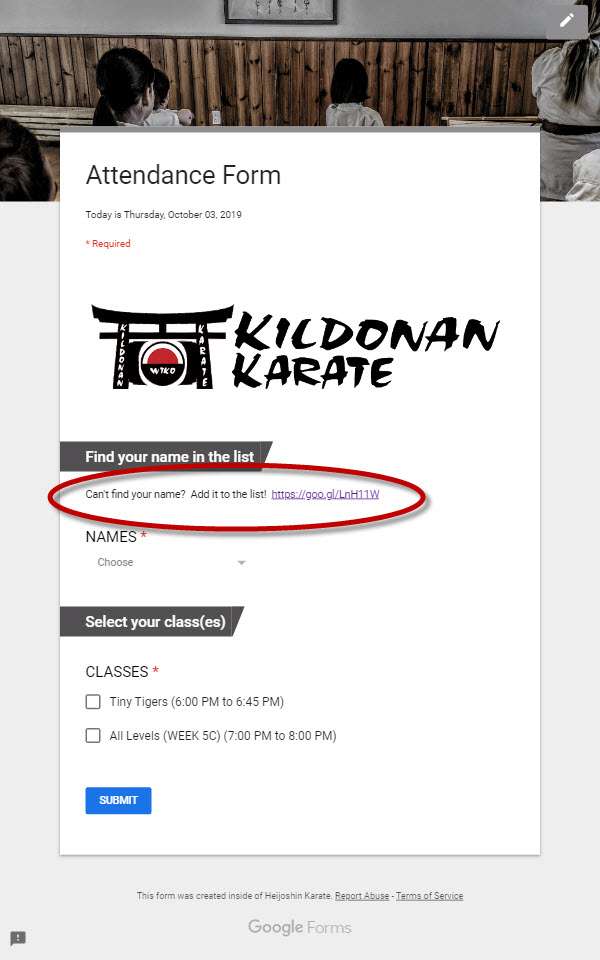Attendance
Please sign-in before class using the tablet at the front desk
At Kildonan Karate, we use an electronic attendance tracking system. By collecting attendance data electronically, we have been able to accurately track student attendance, as well as balance our schedule and class offerings to best suit our membership's needs. It is a wonderfully helpful system... assuming that our members regularly remember to sign-in!
Attendance is a testing requirement!
As laid out in the Grading section above, there are certain requirements a student must meet before becoming eligible to test for their next belt. Regular attendance plays a big factor. Using this system, our instructors are quickly able to determine how many lessons a student has attended since their last test, and whether they meet the minimum number of lessons to test for their next belt.
Students who regularly forget to sign-in each class might be overlooked to test for their next belt as they may not meet the minimum number of lessons according to our records.
Where's my name?
If your name is not yet in the system, you can add yourself using the tablet at the dojo by clicking on the link indicated in this photo.
